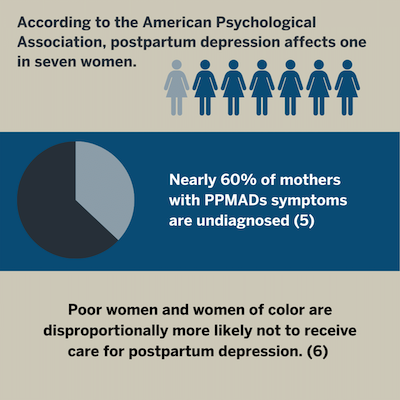Women of color are disproportionately more likely not to have access to or receive care for postpartum depression. This project will develop a chatbot logic structure that draws from research with a cross-section of mothers, thus enhancing our ability to better understand what kinds of support they seek from care providers. As a result, our findings have the potential to better understand the social and cultural dynamics that shape what kind of support those grappling with postpartum depression seek. Supporting mothers who suffer from postpartum depression also provides support and stability for the young children they care for, thus mitigating some of the effects of systemic inequality in their lives.
The development of our chatbot logic structure and the design of the interface will offer insights into developing AI-based systems that are ethical and conscious of the cultural biases that inform AI systems.
5]. Ko, J. Y., Farr, S. L., Dietz, P. M. & Robbins, C. L. Depression and treatment among U.S. pregnant and nonpregnant women of reproductive age, 2005-2009. J. Women's Health 2002 21, 830–836 (2012).
[6]. Howell, E. A., Mora, P. A., Horowitz, C. R. & Leventhal, H. Racial and Ethnic Differences in Factors Associated With Early Postpartum Depressive Symptoms. Obstet. Gynecol. 105, 1442–1450 (2005).



